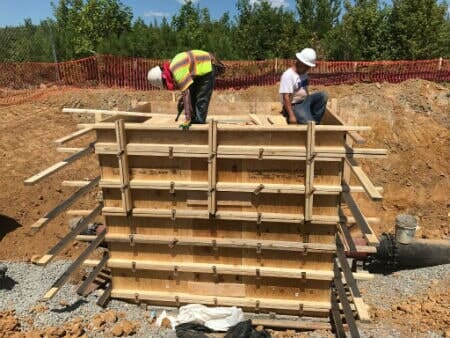
A job in the heating, cooling and refrigeration industry can offer many benefits. You have the option to be an engineer, technician, salesperson or manager. In addition, the industry is growing faster than average. This is great news to anyone who wants to work in this field.
HVAC technicians are responsible for maintaining, repairing, and installing heating and air conditioning equipment in residential and commercial buildings. A variety of tools are used in their work, including pressure gauges and manometers. They might also be required by emergency services. It can be very stressful for workers, who are frequently exposed to shocks and muscle strains. There is a need for more people to work on these systems, which will increase the demand for mechanics in the future.
HVAC has many high-quality vocational education and high school programs. These include courses in electronics, physics, and math. These subjects will help students prepare for their HVAC education. These courses are offered at many junior colleges. Those who want to go straight to work as an HVAC technician can begin an apprenticeship. An apprentice is a trainee mechanic who is often paid at a less competitive rate than a fully trained mechanic.

HVAC mechanics can specialize in one particular industry. An electrician installs heating and cooling components. The other types of HVAC mechanics are furnace installers, and oil burner mechanics. Most mechanics need a few years of experience to be considered a certified technician.
HVAC is expected grow at a rate that is faster than the average growth for all occupations. This growth is due to several factors. There are now more regulations regarding energy efficiency and retrofits. Also, tax incentives are being offered to encourage the installation of more energy efficient units. In this way, it is easier to install new equipment or to maintain older units.
These factors have led to a significant increase in jobs in the HVAC industry over the past ten years. In the next ten years, almost 50,000 new jobs will be added to the HVAC industry. It's a promising industry for people who are looking for high-paying jobs and career advancement.
In all areas of the country, refrigeration installers, heating and air conditioning technicians, and mechanics, are expected to find employment. New York is an example of this, with 381,700 jobs predicted by the Bureau of Labor Statistics for 2026. This is due to the construction of both residential and non-residential properties. Mechanics and installers can find work on construction sites, repair shops, or on individual homes.

A series of exams has been established by the HVAC industry to assess basic competence. Some tests require a knowledge of specific equipment, while others require a strong background in electrical codes. It is possible that you will need to take multiple exams, depending on where you live.
FAQ
Do I need a legal representative to sign my service agreement?
No. You don't need a legal representative to sign your service agreements. A legal representative may be necessary to sign your service agreements.
People who act for another person are called legal representatives. If you are an entrepreneur, you may choose to have someone represent you professionally.
This could also mean that you hire a solicitor or an accountant. This could be a matter of appointing someone who will look after your business interests.
In most cases, the client is responsible for appointing a legal agent. Sometimes, however, the vendor may hire a legal representative.
In each case, having a legal representation means you are legally protected.
How can I get a service contract agreement?
You can get a standard SCA form at your local government. You could also use the online quote generator to get more information about your needs and then send your details to us so we can reach you with additional information.
Where can I obtain more information about building permits
Contact your local government agency (e.g., NSW Local Government Association) for more information. These authorities should be able advise you on the steps to take in order to get permission to build.
Can I cancel my contracted at any moment?
Yes. However, this must be done within 14 business days of signing your agreement. You can usually end your contract by notifying the contractor in writing at least 7 days before the contract's expiration date. If you do not give enough notice, the contractor may still owe you money for work that has been completed.
Statistics
- While we offer all our high-quality services at competitive prices, we know that many who need our services are on fixed incomes, so we offer a 10 percent discount for seniors and military members. (homeservicecontractorsinc.com)
- (1) Ascertain the extent to that offers are based on the payment of overtime and shift premiums; and (2) Negotiate contract prices or estimated costs without these premiums or obtain the requirement from other sources. (acquisition.gov)
- (ii) Name, address, and telephone number of each proposed first-tier subcontractor with a proposed subcontract estimated at $10 million or more. (acquisition.gov)
- (v) Place or places of performance of the prime contract and first-tier subcontracts estimated at $10 million or more, if known. (acquisition.gov)
- (3) The contracting officer may provide for a contract price adjustment based solely on a percentage rate determined by the contracting officer using a published economic indicator incorporated into the solicitation and resulting contract. (acquisition.gov)
External Links
How To
What should a service arrangement include?
Every business relationship should have a Service Agreement (SA). It outlines what you expect from each other and how you will achieve this. It also outlines when and where the other party must fulfill its contractual obligations.
Here are the essential elements to a successful SA
-
Both parties must agree on the scope and required services.
-
Information about payment terms, including the start and end dates for delivery of goods/services.
-
The project price must be agreed.
-
Any additional costs such as VAT etc.
-
If there are any other issues that need to be addressed.
-
Who will be held responsible for any problems that may arise on the job?
-
How disputes are resolved
-
What happens if one party breaches the contract.
-
What happens if there is a dispute
-
When will the contract become effective?
-
What happens when one of the parties doesn't perform?
-
What length of time will you be required to pay invoices
-
Who pays for things like travel expenses.
-
Where the money comes from.
-
What happens when the client has a change of mind?
-
What happens to the supplier if they don't show up.
-
Who is allowed to access the site during construction
-
What happens when the customer cancels a project?
-
What happens if the product is faulty.
-
What happens if a manufacturer refuses to provide parts?
-
What happens if your equipment breaks down?
-
What happens if the project is delayed?
-
What happens when the work is not completed within the specified timeframe?
-
What happens if the quality of the finished project falls below expectations?
-
What happens if costs exceed expectations?
-
What happens to the materials if they are not delivered on-time?
-
What happens when the material arrives damaged.
-
What happens if the products aren't up to standard?
-
What happens if the job gets cancelled before it is completed?
-
What happens if the company goes bankrupt?